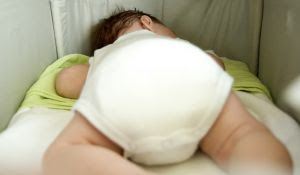It is undeniable that hearing and seeing your little one cry out
loud in pain because of constipation is purely agonizing. Ask any mother
in the world, they all feel the same – it is as if their hearts are
broken whenever they see their babies cry due to constipation.
However,
you have to understand that a small amount of constipation among
infants is absolutely natural (by infant, that means a baby not older
than 1 year) because the body of a baby is not yet fully equipped nor
prepared to some of the normal bodily functions when it comes to
consumption and digestion of food. Therefore, an occasional infant
constipation of a lesser gravity is completely natural.
If
your baby is constipated, you can apply some of the very basic baby
constipation remedies in order to ease your child’s pain. But if your
child continues to complain about pain after an hour or more, then
something serious is definitely wrong. That is why it helps if you know
more about constipation, especially in kids.
But in order to be know better and to give the appropriate baby gas remedy it is important that you understand the common reasons for constipation in babies. There can be a number of reasons why babies feel constipated. And according to medical research, the most common ones include the following:
- Formula: Formula is the milk given to babies that is not breast milk. As everyone knows, breast milk is the best milk for babies. It is perfectly balanced and is easily digested by babies. But formula milk is not as perfect as breast milk, no matter how advanced science and the technology of man has become over the years. A lot of cases have proven that formula milk often causes constipation. Although it is not really harmful, the experience is extremely painful for babies.
- Solids: Perhaps one of the most common as well as the most important cause of constipation in babies is the introduction of solid food to babies. Your little ones have very young and delicate digestive system, one that is not fully equipped to take in and digest solid food. Because of that, the digestive system finds it hard to digest complex food which leads to constipation.
- Dehydration: Dehydration is one common cause for constipation among infants. Constipation caused by dehydration happens when the bowel movement slows down as a result of the low level of moisture in the digestive track. So when your baby is not getting enough fluids as she should, she might have difficulty moving her bowels.
What to Do for Constipation
There are a lot of choices when it comes to baby constipation remedies. Some mothers make use of home remedies to cure their child’s constipation as well as natural baby laxatives. When you say natural baby constipation remedy or a home remedy, that means it does not involve any external medications besides the very convenience of implementing them.
One of the oldest as well as most effective constipation remedy that a lot of mothers have been practicing for years is exercising the infant’s legs. If your baby is feeling constipated and is crying because of pain and discomfort, you can give your baby a sense of relief by making her lie flat on her back and gently exercising her legs in a circular motion just like what people do on a bicycle. Exercising your baby’s legs is a very effective in boosting your baby’s bowel movement.
Aside from exercising your baby’s legs in a cycling motion, another excellent natural baby laxative is feeding your baby some water – but make sure that it has been boiled and then cooled down to room temperature. A lot of mothers have tried this method as well, and they are very pleased with the results. This is also considered as one of the best natural baby constipation remedies the moment your child starts eating solid food.
Another way of relieving your baby off the pain of constipation is by massaging your baby’s tummy. This is a very useful cure especially if your baby finds it very difficult to sleep and stay still. If your baby is crying relentlessly, you can combine both methods – you can first exercise your baby’s legs and then follow it with a massage on the tummy. You can use little amounts of lotion or coconut oil if you have one at home. These remedies are very helpful not only in alleviating the pain that your baby feels, but in letting your baby get a better sleep as well.
But then again, there is no better way to help your baby from constipation but by preventing it from happening right from the start. Like they say, prevention is always better than cure. Thus, give your baby lots of water to drink everyday as well as a diet filled with foods that are high in fiber.
Labels:
Baby Constipation
























